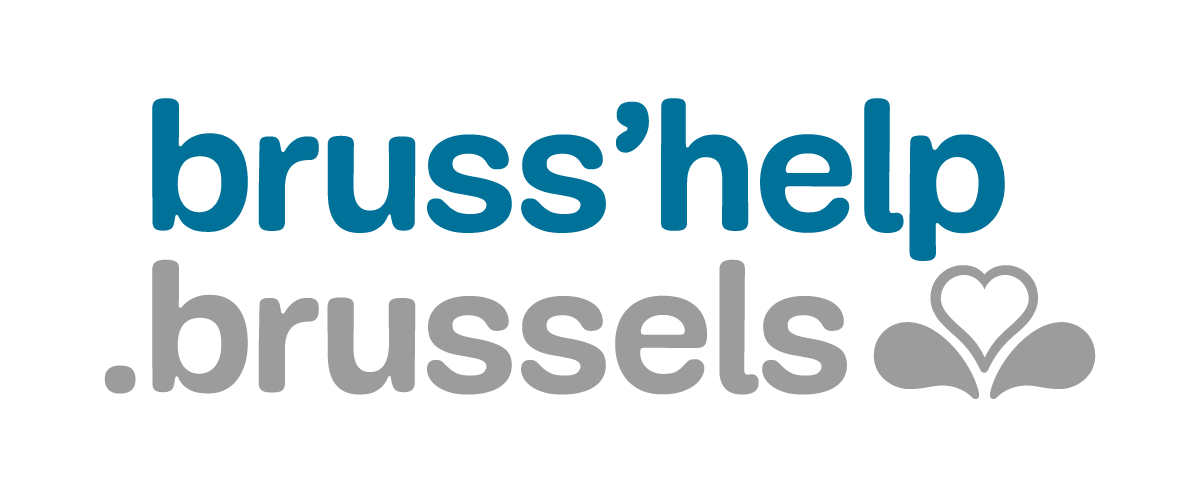Uncategorised
Recommendations based on the Rights First project:
The three main policies attached to those projects are: social protection, housing and employment.
Fully integrated in the European Pillar of Social Right, these policies are provisions of fundamental human rights. In practice they demonstrate interdepency in rehabilitating people with full access to their rights, housing and employment: one is always conditioned by another, two depend on possessing an official address and all provide limited access to homeless people, particularly migrants
The target public is deprived of ressources, highly vulnerable and socially excluded but nevertheless still in age of working. Chances to reintegrate them on the labour market are slim if policies are not customized to homelessness vulnerabilities.
The minimum income
The minimum income is provided on the conditions of being granted the right to stay in the country and having an official address. During the project, EU mobile citizens sometimes faced the dilemma of risking the loss of their right of residency when requesting a minimum income. Indeed, European legislation allows member states to declare someone an unreasonable burden when economically unactive. In Belgium, the Migration Office assesses a person's unreasonable economic burden.
The recommendations are:
- Partnerships between homelessness service providers and public social welfare centres are important in facilitating access to minimum income and other social allowances. Given homeless people are subject to health and mental health struggles, time is of essence to avoid their situation worsening. By working closely together, they shall be able to improve administrative procedures to help homeless people more effectively. As a result, non take up of rights should be reduced and accessing enabling goods and services improved.
- To provide wider flexibility timewise for homeless people seeking job opportunities. Belgium has got into the habit of terminating the right of residence of people who have worked for less than 12 months before applying for unemployment and who have not been active in the following six months. Yet the average period of inactivity for a jobseeker, even a national jobseeker, is 6 months (Caldarini, 2016, p.10). As a result, people who are homeless or poorly housed find themselves deprived of their rights and freedoms because they are unable to meet Belgian administrative requirements.
Housing
Temporary or transit housing are adequate solutions allowing registration for an official address which, once acquired, could be a big step for the target group to progressively process their social inclusion.
The recommendations are:
- Systematizing the process of obtaining an official address in temporary housing
- The public social welfare centre is in charge of homeless people for as long as their situation has not changed, even if temporarily settled in an accommodation outside its borders.
- Given the saturation of the housing market, measures facilitating access to the private housing market should be undertaken. Affordable rent, anti-discrimination, enhanced support to safeguarding housing, housing renovation, eviction prevention are non-exhaustive but most needed measures to deploy.
Employment
Getting a job is a positive argument to get the residential right and become eligible for social protection. Another way to actively support employment is by partnering with private employers in view of raising awareness on the ability of homeless people to still work and securing new job offers. Coaching is provided to new recruits to encourage them in their new endeavour.
The recommendations are:
- The development of an inclusive labour market policy engaging private employers in hiring vulnerable people provided psycho and social support is delivered to sustain their job.
- To further invest in employment prospections (job hunting, training on digital tools, infrastructure combined with coaching).
- Intensify opportunities to lift people out of the street by providing temporary housing and an employment contract at the same time.
EU Mobile Citizens
The European Union's DNA promotes a single market stimulated by the free movement of workers beyond the borders of the Member States. It claims to be social and advocates equal treatment for national and European citizens. Yet social exclusion, poverty, long-term unemployment and inactivity are among the concerns of the European institutions, because many people in Europe are at risk of falling into poverty. The main question is: how to reconcile freedom of movement for migrant workers with guaranteed access to social rights in the host country?
The recommendations are:
- Fight against Roma discrimination and support home countries
- Automatic access and portability of social rights
- Stronger actions against mental health struggles related to a combined homelessness and migration background.
All information disclosed reflects the opinion of the author only. The European Commission is not responsible for any use that may be made of the information.
![]()

1/ Governance: coordination and operationalization
In an integrated approach, governance means bringing together not only organizations but also people around common goals. They rely on each other’s expertise and split resources to achieve their common goal.
As the integrated approach brings along diversity of stakeholders, communication channels between decision-making, operational level and beneficiaries are crucial to maintain and feed.
Steering Committees

RIGHTS FIRST : Bruss'help
- The steering committee made of the homelessness services providers and the public service in charge of implementing homelessness ending policies met regularly to discuss implementation strategies following a workplan and objectives.
- This steering committee was extended to other public stakeholders having direct connections with the objectives of the project at regional, federal and European level including the co-funders of the projects. This committee met every 6 months and delivered feedback on the issues raised during the meetings whether they were successful or not.
- The steering committees were supported by a scientific committee assisting in the monitoring and evaluation process of the project. They helped developing the key performance indicators and analyse the data.
Roles and responsibilities, data sharing (including GDPR regulations), budget arrangements were stated in agreements with the co-funders of the project, the project coordinator and the partners.
Working group of social workers

RIGHTS FIRST : Bruss'help
Each partner appointed social workers to test out the innovative solutions while providing assistance to homeless people. The originality of this team was that homelessness services providers and a public social welfare center were represented. In the spirit of exchanging best practices and in regard to professional ethics, they sought advice on difficult coachings, organize joint coachings as well as shared operational concerns or positive outcome from their experience on the field with the steering committee.
Partnerships with internal and external stakeholders
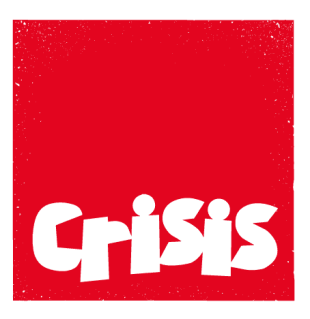
SKYLIGHT : CRISIS
Skylights work in partnership with both internal and external partners to ensure we support members to end homelessness sustainably. Internally, we do this through working with colleagues in the Policy and Social Change Directorate, seeking to use the evidence based in practice, to influence the policy changes needed to both prevent and end homelsnessness. This could be at both a local level, through changes to local systems, to a national level, influence legislative changes to ensure the statutory safety net to support people is robust. Within services we use our flexibility to test and learn new approaches to ending homelessness. For example, in London and Newcastle, funding Housing First Projects, working with the most marginalised and excluded members to provide ongoing and open-ended support or in Swansea and Liverpool, through Critical Time Intervention Project working with people leaving prison to establish themselves in local communities to leave homelessness behind for good.
Skylights also work with a range of both statutory and voluntary sector partners across the UK. We do this again, member by member. Advocating to ensure members access the statutory services available to end their homelessness, helping to navigate often complex systems. We also work to influence partners locally, helping to influence local system change and piloting new ways of working to evidence how, together, working with partners, we can improve people's lives and prevent and end homelessness.
Buidling an alliance

INSULA : Sant Joan De Déu
Since 2019 collaboration between the 4 organizations enables to accompany people in a specialized way and reach for the best solutions at every moment for the project.
Each organization contributes with its expertise in the corresponding field:
Sant Joan de Déu serveis socials: Coordination of the project and carries out the social support of the project.
Formació I Treball: give support in the employment area, coordination with the labor technician is constant and fluid both with the team professionals as with related participants.
Fundació Mambré: Coordination work is done on entries and exits, formalities and contract renewals, and care management. In 2023 it starts managing new grants for renting (Garantim), which will involve some changes in the contracts and ending with practically all rent grants.
Càritas diocesan of Barcelona: Referrals are done to the legal counseling department above all in migration issues and regarding some people to support needs in psychological area.
Contacts and coordination have been established with the different local Social Services where the homes are located. In particular, meetings have been held to study ways of collaboration with Prat del Llobregat, Sant Boi de Llobregat, Esplugues de Llobregat, L’Hospitalet de Llobregat (municipalities in the metropolitan area of Barcelona) to establish a shared strategy for accompanying people and not duplicate resources. From 2020 INSULA is part of the Vulnerable Community Care Network in the Prat del Llobregat. In Barcelona, INSULA participates in the XASPLL (Homeless Care Network) with presence in the working groups of inclusion flats and access to housing.
From the beginning the technical commission which represents the four organizations has met quarterly, which has allowed the project to develop and evolve.
An institutional commission has maintained annual contact. Good results of the collaboration of the alliance among the four organizations made possible an upscaling of INSULA and to generate other specialized projects such as Vesta (single parents families profiles) or Futur&Co (youth homeless profiles).
2/ Monitoring and Evaluation
Monitoring and evaluation tools serve three purposes:
1) Ensuring the project progresses as planned: measuring efficacity, efficiency, relevancy coherence and related risks of the project helps to control and maintain its quality and whether its outcome will be achieved. This can be done with classical project management tools from the logframe, risks analysis, workplan to budget forecast, etc…
2) Verifying the extent in which the outputs positively impact the target public: measuring the impact on the target public and tailor the measures to ensure they contribute to the expected outcome. This implies identifying key performance indicators (quantitative or qualitative) and seeking ways to collect, process and analyse the data.
3) demonstrate convincing results with scientific data.
It is important to have determined a baseline, the situation from which the monitoring is set to start. Therefore, it is recommended to have a monitoring tool ready to function before the project implementation phase. All of those steps will help to draw conclusions, facilitate decision-making and eventually contribute to policy improvements.
Project’s progress and impact

RIGHTS FIRST : Bruss'help
- 1. Control and maintain its quality and whether its outcome will be achieved.
- As of testing social innovations on a homeless target group, Rights First set up multiple solutions to test out on the field. Each of those solutions was provided a fiche in which was a description of the solution and its evolution from its implementation to the end of the project. Based on qualitative data, the fiches were available to all members for use or information.
- Questionnaires to evaluate the partnerships were also forwarded to the members. They aimed at understanding where they stand throughout the project and how they builded the integrated approach.
- With the help of an academic researcher, key indicators of performance were identified to have an overview of the beneficiaires’s evolution. The data collection allowed to analyse the impacts of the innovative solutions on the beneficiaries’ situation at predetermined times: the time they enter the project, the project’s midterm and the project end’s time.
2. The outputs positively impact the target public:
Monitoring and Evaluation to improve governance

SKYLIGHT : CRISIS
Client Services Procedure and Governance team sits within the Client Services Directorate to fullfill the following purposes:
- Work with the Client Services Senior Leadership Team (CSLT), service managers, member facing staff and members across Crisis services to develop and review key policies and procedures for Client Services that will support staff in their work with members.
- Ensure that internal audits of services are carried out regularly, covering key areas such as safeguarding, lone working and case management.
- Proactively work with the Member Database (NotAllowedScript6982434edbddbMAPS), Data and Technology and Research and Evaluation teams on the development of reports for trustees, client services managers and staff.
- Work in partnership with the other members of the Client Services Service Development Group (CSSDG), including the Volunteer Advisory Panel (VAP) and the Experts by Experience Network to deliver improvement projects designed to support continuous improvement of ways of working across all Crisis Client Services.
CSSDG (Client Services Service Development Group) CSSDG oversees, co-ordinates and manages the development and review of Client Services policies and procedures, as well as other development and improvement projects and priorities agreed by CSSLT.
It is also one of the places where decisions are made about questions or issues that have arisen from the Communities of Practice (which are run by the Best Practice team).
Monitoring and reporting across Client Services: The Procedure and Governance team work in partnership with Client Services teams and CSSLT to produce quarterly reports regarding:
- Incidents
- Complaints
- Safeguarding
- Key performance indicators (KPIs).
Participatory monitoring and evaluation

INSULA : Sant Joan De Déu
From its design, quantitative and qualitative evaluation has been examined at INSULA, identifying key indicators, to control the project quality and to be able to improve and measure its impact.
For the quantitative evaluation, data from beneficiaries’ files is collected and analysed twice a year.
For the qualitative evaluation, every 6 months, participants of the project evaluate their perception of improvement in regard to the previous period. The results of recent years indicate that 80% perceive an improvementor a stabilization of their situation. The level of satisfaction is assessed annually with also high results.
The positive results allow the project hypotheses to be validated as it shows that social support allows people to define a project for the future and get out of the situation of exclusion .
The project has also demonstrated flexibility and adaptations towards different groups (single parent families and young people) and could be adapted to groups such as elderly people, etc.
The Insula project has ISO 9001:2015 quality management certification with annual audits as well as economic, data protection audits to guarantee the achievement of standards and regulatory legislative frameworks of ISO regulations and is audited annually to contribute in rigor ways to its methodology.
All information disclosed reflects the opinion of the author only. The European Commission is not responsible for any use that may be made of the information.
![]()

1/ Housing
Nowadays, we consider homelessness is related in its core to housing loss or poor housing conditions: increasing rents in private real estate, lack of social housing are tips of the iceberg causing precarity.
Making up for the right to housing is nowadays a priority to lift people out of the street in the long term; not only to (re)activate social protection but also to create a safe environment to reduce risks of chronic homelessness.
In a context of housing crisis and as far as possible, it is either about rehousing people or creating new housing solutions. That is why, homelessness service providers need to develop partnerships with public and private housing stakeholders in view of increasing and consolidating chances to provide housing to vulnerable people.
Stabilization and safeguarding housing
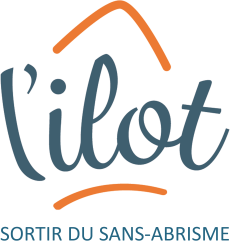
RIGHTS FIRST : L'Ilot
The Rights First’partners worked with public social real estate agenciesy or Housing First programs to provide housing to homeless people. Belgian regulation states that social real estate agenciesy have to grant a pourcentage of their housing to homeless people, an increasing is foreseen from 3% in 2025 up to 6% in 2027. Housing First has been developed for the most vulnerable homeless people or families. Furthermore, coaching towards housing starts when people are still living in the street or in emergency or temporary shelters in view of processing the challenges of finding housing and stabilization. The social workers will join the outreach team on the field to connect with people. Coaching also aims at safeguarding housing, meaning it takes places as long as the lease lasts and ensures that the tenant builds up autonomy to prevent relapsing into homelessness. Collaborations with public social welfare centres and municipalities facilitate (re)activation of social rights as much as homeless service providers specialized in housing safeguarding can help those public authorities in providing more intensive care to tenants.
The challenge remains the access to housing for the homeless people that are undocumented. However, registering the address of temporary housing could be a solution. See next box.
Temporary Housing

RIGHTS FIRST : Samusocial
To help homeless people recover their rights, 2 temporary housing units (New Samusocial’s Casa project) allow people to officially register to the municipality and public social welfare centre. This type of housing solution disregards people status and actually is an efficient path for undocumented people or persons with a precarious status to improve their administrative situation and residential rights with the help of social workers. The only requirement is that their situation has potential to be resolvable. Those projects are currently run for single women with or without children.
The tenants benefit from a 3-month renewable agreement providing them with a maximum of 12 months of support. They reside free of charge in individual rooms, sharing facilities such as bathrooms, kitchens, and common areas in one of the houses, while in the other, they have their own bathroom. Within this community approach, they are given a space for respite and psychological reconstruction, fostering self-esteem through a warm atmosphere.
During their stay, women are coached by partners from Rights First in their job and housing searches, as well as in learning digital literacy and independent living skills. This project has proven to be a success:
- Temporary accommodation helps to overcome obstacles and advance administrative procedures that were previously hindered due to lack of domiciliation (access to income, employment, etc.).
- Partnerships established in the context of these procedures, such as job and sustainable housing searches, show tangible results.
Access to housing
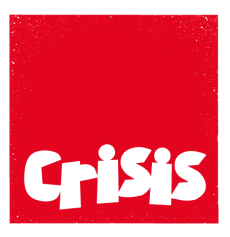
SKYLIGHT : CRISIS
Crisis does not own its own accommodation and needs to develop pathways into suitable temporary and permanent housing for members through our Housing Procurement and Landlord Liaison Teams. Those teams work directly with private and social landlords to increase access to suitable housing for Crisis members and the likelihood that members sustain their tenancies.
The offer to landlords and housing providers includes a designated point of contact at Crisis throughout the tenancy, property assessments, property matching with a pool of tenants, direct rent payments, mediation and tenancy breakdown prevention, and free optional rental insurance. This serves to provide landlords with the security they need in order to let their properties to Crisis members with peace of mind.
The benefits for Crisis of maintaining relationships through regular contact with landlords/housing providers include:
- Sourcing new properties
- Hearing about new properties in the pipeline
- Learning about prospective problems with a tenancy early, at which point they can intervene and potentially prevent deterioration of the situation, and evictions
The main benefit for landlords/housing providers is the ability to fill new properties quickly. Services support landlords/housing providers who have housed a Crisis member by being a point of contact in the months following a tenancy start. This enables information flow both ways regarding potential issues with the tenancy. Should these occur, services can intervene by:
- Passing on tenancy issues to the member’s Lead Worker (if the case is still open)
- Playing a mediator role between landlord and tenant
- Supporting Crisis staff to reopen the case and reactivate support to the member if required
- Supporting a move-on by the tenant (into more appropriate accommodation), if required.
Services will support people for a period of time after they have moved into properties to ensure they are set up to be as sustainable as possible. This may include:
- Financial incentives such as rent in advance and deposit or bonds
- Using Skylight member budgets to purchase move-in items such as furniture or white goods or move in packs.
- Supporting new tenants to set up direct debits and ensuring they understand how all practical elements such as how rent and utilities work and are paid for
- Ensure new tenants know where all their local community facilities are.
- Doing wellbeing check-in calls with tenants in the months after move-in to ensure all is going well
- Being a point of contact for current tenants to raise concerns if they are not comfortable talking to the landlord directly (after case closure).
Housing contract with a Foundation

INSULA : Sant Joan De Déu
Insula provides housing solutions to families or individuals that cannot afford private renting. Inspired by the housing first principles, at the Insula project, housing and support are separated. This means housing support is to help people maintain a tenancy and also to offer support to any other needs identified. Families or individuals participating in the project will not lose their housing if they disengage or no longer require support. The choices they make about their support do not affect their housing.
The fact that the Mambré Foundation guarantees continuity in housing, offering tenancy contract and supplies in their name facilitates social work and allows the individuals and families make a process of recovery guaranteeing the right to the home before and after its passage through Insula. Tenancy contracts allow municipal registration that is the way to access other rights like social benefit, health care or education.
- Access to housing (individuals sharing home or individual family units), formalized with a rental contract, annual and renewable, between the Mambré Foundation and the person/family.
- Homes are delivered furnished and with basic equipment.
- Co-payment: Contribution of a maximum of 30% of economic income in terms of payment of rent and supplies. The difference between this 30% and the actual price of the rent and supplies is provided as a non-returnable grant managed by Sant Joan de Déu Serveis Socials.
- Temporary stay in housing and social support, adapted to the process of each person, without being a finalist resource.
2/ Employment
Besides housing, employment is perhaps the most effective way to secure stabilization when homeless people are still able to work. Psychologically speaking, it would help them find some new purposes in life.
However, reintegrating the labor market is very challenging in many ways: the demands of competences, digitalization cleavage, language blockage, etc. Homeless people are heavily excluded from the labor market. Partnerships are relevant to support people in enhancing their competences or gain experience to get a job.
Partnerships with private stakeholders

RIGHTS FIRST : HOBO
Partnering with private employers goes twofolds:
1) Raising awareness on the employability of vulnerable people in a situation of homelessness
2) Building partnerships with private employers
The partnerships aims at facilitating access to available jobs for vulnerable people. Through the usual process of applying for jobs, weaker and less attractive working profiles have almost no chance of being contacted and employed. Their curriculum is not attractive enough and gets automatically filtered away. Through the partnerships, the weaker candidates are first screened by the work coaches of Rights First. After this screening, the candidates whose situation is more stabilized are put in direct contact with the employer. This shortcut in the application process of the partnership has already proven its benefits.
Once a candidate’s application leads to an employment contract, the partnership includes long-term support for the candidate in the first period of his contract. This practical support provides the necessary help for administrative questions and operates as a real prevention work in the different life domains.
An active partnerships between social organizations and private employers facilitates crossing the gap towards work and perpetuating employment by a serious follow-up.
Partnership with public authorities

RIGHTS FIRST : CPAS Brussels City + HOBO
With their own employment and housing programs, the public social welfare centers in Brussels offer a real interest for the improvement of the situation of homeless people. A partnership with the PCSW of 1000 Brussels aims at offering both solutions (housing and work) to a selected number of candidates. Homeless people with a real reintegration potential are offered a working contract through the PCSW’s employment service: the “article 60”. At the same time, a long-term housing solution is proposed to the candidate. This innovative double solution allows a real transformation for the person. With substantial guidance and support, these challenging solutions enable radical change in a homeless person’s situation in a short amount of time.
Employment Support

SKYLIGHT : CRISIS
It is essential, as with all aspects of our services, that employment support contributes directly to homelessness ending for good, rather than being a standalone offer.
Individuals accessing our service often feel positive about their employment prospects and the future when our teams talk to them about their personal situation and about their personalised plan, which will support with their employment and ability to move out of homelessness. Our programme will work in partnership with others, to improve members opportunities in the job market and is developed with the member to meet their particular needs. The personally tailored support combined with having an allocated lead worker means members feel engaged in their plan to secure employment and move away from homelessness.
Employment Brokerage (London)
Employment brokerage is part of supporting members into independence and away from homelessness. The aim of the Employment Brokerage service is to secure employment opportunities for members across all Client Services in London and, where tenable, more nationally. The service works with those employers that are engaging with the service to ensure they provide supportive environments where a member is given every chance to succeed, whilst ensuring their employment practices are not compromised.
The Employment Brokerage team sources employment opportunities for members who are close to being work ready and who are keen to develop their skills and experience. The team matches a member's skills, desires and experience to vacancies within partner organisations, helping them to secure sustainable employment. Tailored training packages can be created for specific employment opportunities within industries such as construction, hospitality, facilities, and customer service.
Department of Work & Pensions- Employers’ Covenant
The DWP’s National Employer and Partnership Team (NEPT) manage accounts for over 250 national employers and partners. Crisis is a partner of the DWP and over recent years we have worked closely with the NEPT, including developing a homelessness toolkit for Job Centre Plus staff.
From July 2023 Crisis will be hosting a Homelessness Covenant on behalf of the DWP. This will provide an online framework within which employers and partners can enquire, sign up, and be supported in their pledge to end homelessness. For example, employer pledges could be :
- Provide employment and training opportunities for people at risk of or experiencing homelessness
- Adopt fairer recruitment and employment policies and practices to support people affected by homelessness.
- Help end homelessness in local communities through fundraising, raising awareness, partnerships, and volunteering.
Access to employment easier when housed

INSULA : Sant Joan De Déu
At Insula, Formació I Treball provides individual support to people who have access to housing so that they can improve their employability and facilitate their access to the labor market.
The insertion itineraries developed within the framework of the INSULA project seek to achieve the best insertion rates through coordination between job inserter and direct care professionals - social workers and social integrators -, with the aim of always finding the best fit between the work itinerary and the extremely changing situation of the accompanied people. Among the different approaches, the itineraries contemplate hiring in the Formació i Treball Group's insertion companies (shelter and employment) whenever the need for an intermediate step is detected before joining the ordinary market. At the same time, all people carry out training in transversal and basic skills, technical-professional and non-work practices.
Support for a personalized employment insertion itinerary with Formació I Treball Fundació.
All information disclosed reflects the opinion of the author only. The European Commission is not responsible for any use that may be made of the information.
![]()

We know how challenging it is for homeless people to maintain administrative documents in order. The non take up of rights demonstrates even more that the process to do so in hope of finding ways out of poor housing or homelessness can be overwhelming and discouraging.
That is why partnerships between homeless services providers and public authorities in charge of the allocation of social allowances or other types of help. Such privileged contacts aim at facilitating administrative procedures as time can be of essence depending on how vulnerable homeless people are. The homeless service provider can assist beneficiaries and liaise with public authorities throughout the whole process.
Creating SPOCs in public administrations in the Region of Brussels DC
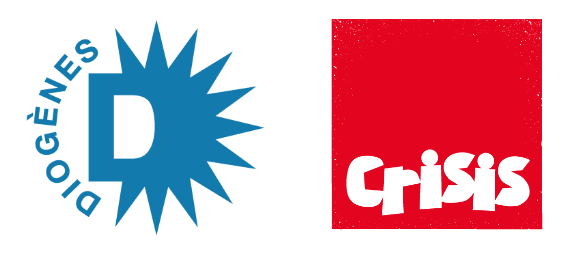
RIGHTS FIRST : DIOGENES + CRISIS
The objective is to overcome administrative blockage preventing homeless people from meeting personal needs or having access to services. Creating partnerships to resolve administrative problems for homeless people meant having special points of contact (SPOC) within public authorities and seek out ways to formalize collaborations. Although the approach has to be adjusted depending on the public authority’s specificities, it revolves around the following steps:
1) explain the context of homelessness in Brussels
2) connect with the European level and create common ground: combating homelessness
3) present the Rights First project
4) Identify a special point of contact to carry out the partnership
The outcome remains open as multiple types of documents or actions can unite different partners (a chapter of common values, a partnership agreement, etc.). Rights First’s proposal was a Declaration of Intention ( link to the document) as an understanding of shared goals and intentions creating a more lasting partnership. However, attention was drawn to not having a one-way relationship but to nurture it: communication on results of our actions, informing on the target public’s access to rights as well as offering assistance when required…
Engaging with public authorities goes along with their bureaucratic pace or their restrictive legal framework. Receiving an answer to meeting requests and planning takes time. It is time consuming for homeless service providers to build partnerships while their focus is on people mostly in urgent need. That is why it is important to appropriately balance resources between building partnerships and assisting people. Once the contact was established with a SPOC, the main interest was that all Rights First partners could benefit from the collaboration. Nevertheless, when the partnership is implemented, it eases social workers’endeavours in supporting people.
Another issue is to allay the fears of public authorities about the idea of a parallel circuit for homeless people in administrative procedure follow-ups. It is necessary to reassure that SPOCs would only intervene when usual procedures are blocked. It is a win-win situation: save money by avoiding lengthy procedures and saving lives.
Striving to end homelessness through Individual coaching

RIGHTS FIRST : Samusocial + DIOGENES
Beyond seeking homeless people’s rights rehabilitation, homelessness service providers coach people as long as needed. Indeed, rights rehabilitation is omnipresent t to the support required to lifting people out of the street as many other issues may come along such as family related vulnerabilities, mental health or health issues, addictions, housing, etc… These are trajectories that are constantly reviewed and customized depending on the homeless situation treated.
Having rights restored does not mean they are forever acquired. Uninterrupted support is necessary to build a safe and sound environment for homeless people with a view to preventing losing rights again. Given that each situation is different, data on all steps taken and resulting in access to rights are worth being shared between partners and analysed to make them sustainable. In this regard, it is important to devote time and resources to the individual guidance of homeless people built up on a high-quality care relationship and trust.
UK Crisis’s model of change
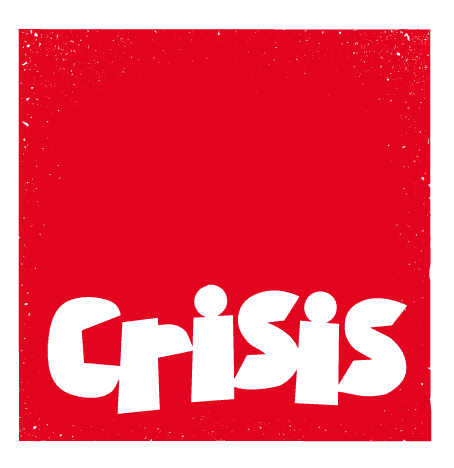
SKYLIGHT : CRISIS
To support people in ending their homelessness situation, UK Crisis uses developed a model of change. After assessing the situation and verify whether Skylight is able to provide support, the admitted member can benefit from customized support, either intensive care management or structured coaching depending on their level of autonomy as well as available personal resources. This model strongly relies on continuous learning to find:
- ways of engaging members before they are ready to end their homelessness,
- ways of increasing a member’s ability to find and secure a home
- ways of increasing a member’s ability to succeed in that home and prevent a return to homelessness.
Their model of change is strengthened by another model, Psychologically Informed Environments and aApproaches devised to describe the approach homelessness services developed, in order to meet the needs of people that mainstream services struggled to reach. PIE provides a framework that supports an organisation to design its service around the psychological needs of the people that use it. People are better able to access and effectively engage with their services because relationships are at the centre of what they do, bringing a psychological understanding to their work and always remembering to reflect and learn. Psychologists are embedded in every Skylight sites to lead on the development of psychologically-informed environments and approaches, with the aim of: Enabling staff and volunteers to recognise and work effectively with emotional and relational issues.
The Crisis model of change.
Individual coaching by an alliance

INSULA : Sant Joan De Déu
The Insula alliance is made of 4 partners, each having their own experience. Fundació Mambré deals with the search and capture of housing and is responsible for the formalization of the tenancy contract, renting collection and supplies, processing of public rental aid and the adaptation and the maintenance of housing infrastructure. Sant Joan de Déu Serveis Socials provides a personal and comprehensive social support with community and networking perspective and personal support to people to sustain their tenancy. Sant Joan de Déu Serveis Socials and Càritas Diocesana de Barcelona also provides an economic fund, according to a scale of economic income, to be able to manage home renting and supplies. Formació i Treball, offers training and manages support for individualized itineraries for people to be able to generate incomes and sustain by themselves their economy. Cáritas Diocesana de Barcelona provides psychological care with the intention of preventing and treating the psychological suffering of the accompanied people. Cáritas Diocesana de Barcelona offers legal support to make legal services available that respond to their personal needs. This support is mobilized for everything related to the exercise of their rights.
All information disclosed reflects the opinion of the author only. The European Commission is not responsible for any use that may be made of the information.
![]()



